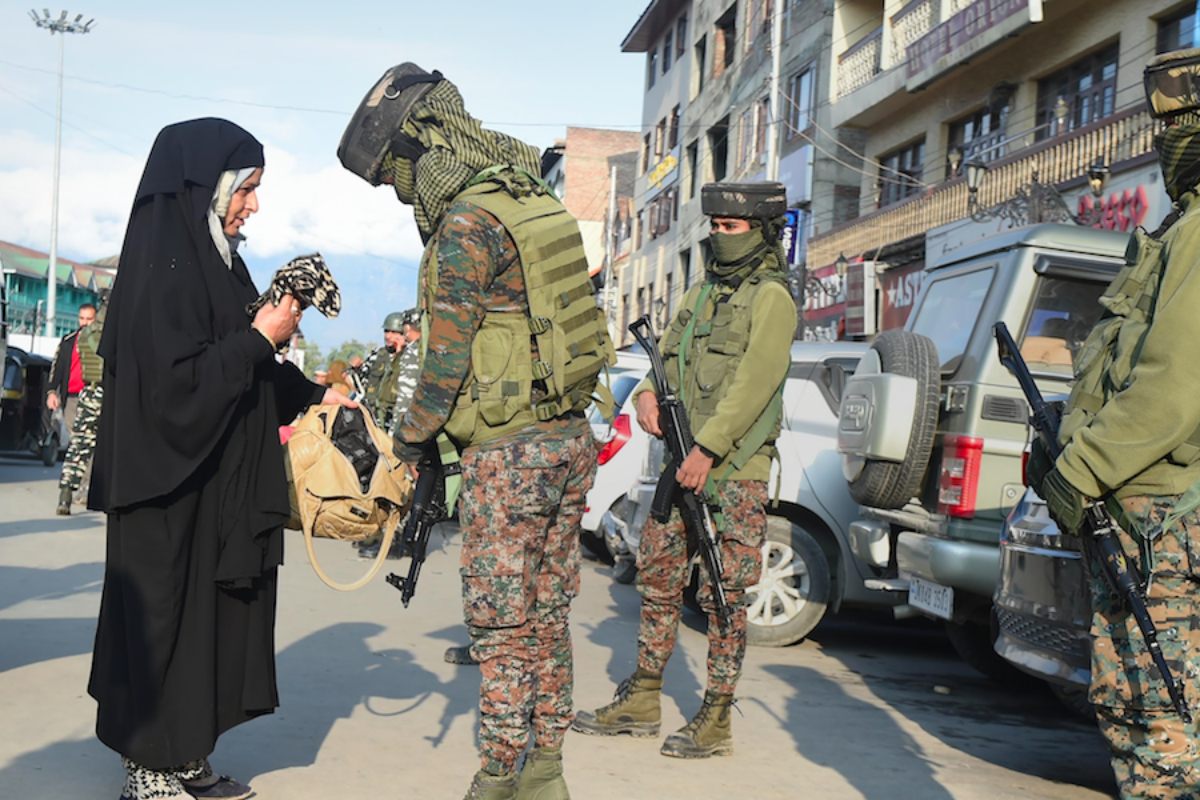Six injured in IIOJK blasts before India opposition leader Gandhi arrives
At least six people were injured in two blasts in Indian illegally-occupied...

Srinagar: New digital ID in IIOK raises concerns over surveillance
Srinagar: Mehak, a university student in the northern Indian city of Srinagar, is accustomed to frequent identification checks by security forces and officials, and always carries two forms of identification. She may soon need to carry another in her purse.
Many residents, including Mehak, are confused and irritated by plans for a new family ID in the Indian illegal occupation of Kashmir, while rights activists fear the program will lead to increased surveillance and data hacking in the disputed Himalayan region.
“Families already use ID cards to gain access to social welfare programs. “So, why is this necessary?” asked Mehak, 22, who requested that her last name be withheld.
According to regional officials, the JK Family ID, an eight-digit code assigned to each household, will improve access to social welfare benefits such as subsidized food grains.
According to Prerna Puri, a commissioner in Kashmir’s information technology department, this means that families will no longer have to apply for benefits under various schemes because eligibility decisions will be automated based on data.
As part of the Digital India program aimed at better governance, the government is undertaking a massive digitization push across India, including health records, property titles, railway bookings, and utility payments.
Some in the Indian illegal occupation of Kashmir believe the new family IDs are part of a campaign to increase control over residents.
In order to tighten its grip on the Muslim-majority region, the Indian government led by Prime Minister Narendra Modi revoked IIOJK’s autonomous status in 2019 and divided the former state into two federal territories.
Residents of Kashmir are right to be suspicious of the government’s motives, according to Angad Singh Khalsa, an independent human rights campaigner, because they have previously been singled out for increased surveillance on the grounds of national security.
From 2020, everyone in IIOJK will be required to apply for domicile certificates, which will allow them to vote in local elections, buy farmland and houses, and apply to public universities and jobs.
Many residents, particularly Muslims, have refused to sign up for these certificates, unsure of the motives of the ruling Hindu nationalist Bharatiya Janata Party.
People are even warier with the new family IDs.
“Creating a unique family ID’ for J&K residents after 2019 is emblematic of the widening trust deficit,” Mehbooba Mufti, an opposition leader, and the former IIOJK chief minister said in a tweet.
“Kashmiris are held in high regard, and this is yet another surveillance tactic to tighten the iron grip on their lives.”
Security researchers and journalists have also reported multiple vulnerabilities and data leaks associated with the programme, though officials have downplayed the reports and stated that biometric data is secure.
Residents are vulnerable to increased surveillance and exclusion due to increased data collection for the JK Family ID and the lack of a federal data protection law, according to Anushka Jain, policy counsel at the Internet Freedom Foundation, a digital rights group in Delhi.
Parliament has yet to pass a new draught of a long-delayed data protection law.
“Any data collection exercise has the potential to cause harm. “Especially when there are no safeguards in place and we have no idea how the data will be used, stored, or accessed,” Jain explained.
“Even with individual Aadhaar IDs, there is so much exclusion. With family IDs, if there are errors in the data or if one member is caught up in something, then the entire family can be excluded, so the potential for harm is much greater.”
Authorities in IIOJK have stated that they will collect data with the consent of beneficiaries and will follow all applicable data protection laws. Officials have also stated that the cybersecurity framework will be strengthened.
Kashmir’s family ID is similar to Haryana’s digital IDs, which were introduced in 2020 to allocate welfare benefits.
However, there are more pressing needs in a region that has lagged behind the rest of the country in terms of investments and economic growth for decades, according to Asrar Reeshi, a Srinagar resident.
“I don’t see how an eight-digit ID will help people when there are so many other issues to deal with, such as the economic crisis, a lack of hospitals, and an inadequate education system,” the 21-year-old student said.
Catch all the Business News, Breaking News Event and Latest News Updates on The BOL News
Download The BOL News App to get the Daily News Update & Live News.